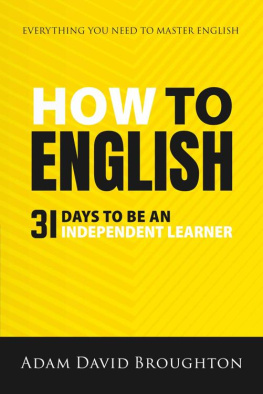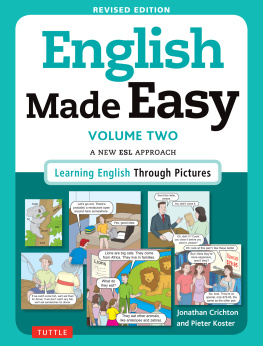My Story
I was rejected in my first job interview because of not being able to communicate fluently in English. After a few months, the same company hired me and later on promoted me as a communication trainer to train their employees on spoken English. This started my career as a communication trainer . Without any exaggeration, I became one of the best communication trainers in the industry. My trainees were very thankful for my methods of training because they made them learn how to communicate in English correctly throughout their lives. In addition, they knew what to do if they needed to improve further without my help.
Considering that I faced a challenge with communicating in English earlier, I had an advantage while training people on Communication as I understood the mind set and challenges of people who struggled with speaking fluently. I had faced it. So I knew the learners challenges. This is what made me an excellent trainer of the language. I was able to break things down to the learners level of understanding and grasping.
Not just this, I created as well as improved existing communication training for a number of organizations. My colleagues, bosses, and clients showed full trust in my techniques of training on communication. Native speakers of English (for whom English is their first language) used to ask me how I could speak so well even though English was not my first language.
This book contains my journey of learning how to communicate in English fluently. I have shared my methods of learning English, especially spoken English. With these methods, I was able to master the language in a few months. This book also has my notes and examples that helped me remember the concepts and guidelines easily.
I recommend this book to anyone who is interested in learning English in an easy and independent manner or refreshing their English basics quickly. Remember, you can only understand complex rules and increase your vocabulary when you know the basics. It is hard and stressful to jump to Level 2 without completing Level 1. I have explained concepts in the easiest possible manner and have consciously avoided too much information on each topic. What makes this book fun and effective are the techniques through which you will be learning each concept. If you take responsibility for improving your communication, you will automatically enjoy completing the activities. Through the activities, you will notice a change in the way you communicate in English as each day passes. The time that you will take to start showing improvement depends on your level of English as of today and the dedication you show. If you complete the recommended activities on a daily basis, you could learn in one month to three months. It could be lesser if you already know the language and are struggling only with speaking fluently or only with a few grammar rules.
This book is also very helpful for those who train on spoken English and want to understand their learners in a better way.
My journey began with being rejected. Rejection is not a good feeling. I was very demotivated and felt inferior as if I was not good enough to do anything in life. After a few days of thinking, I went into action mode and figured out what I was lacking. Even after getting a fairly decent percentage in school in my English exams, what made me get rejected?
The answer was that I never made an effort to speak in English. I could write without making too many errors but I could never express myself clearly if I were to speak only in English for more than a few seconds. I did not even have many English speakers at home .So I never felt the need to speak in English.
I am not embarrassed to share that not many people in my family know this language well; however it does not make them any less talented. My family was the biggest support system I had which encouraged me to refresh my spoken English skills rather than getting demotivated after I was rejected.
If you want to communicate in English fluently, the first thing to do is to stop feeling inferior just because you dont know the language. Then, figure out the areas in which you are lacking. For example, in my case, it was lack of effort and practice of speaking in English. Different people face a variety of challenges such as not being exposed to the language at all, not having many people around to understand the language, or not being good at Grammar, Pronunciation, or Fluency. Some people also get bored because there are so many rules in the English language and then, there are so many exceptions to the rules. I faced this challenge too.
I did not know where to begin from. There were many thick books that looked scary and made me think that it would probably take a lifetime to complete those lengthy exercises. And there were way too many concepts explained in a lengthy fashion. I felt that those books were great for people who wanted to master the language or write thesis on it but I was looking for something that I could understand easily and remember for the rest of my life. I even thought of going to a language institute for practising English but the length of their training did not get me interested. I did not want to learn English to clear written exams. I wanted to learn how to speak in English fluently.
What caught my eye was a childs English Grammar book. I started making my own notes and writing simple and limited things that I could remember. But there is a lot that I did differently than how I learnt in school. Grammar is vast and there is Pronunciation too. Therefore, I balanced it by learning minimal definitions and focussing on the correct usage. I also completed exercises verbally rather than writing everything down. Then, I started applying what I learnt by talking to people in English as much as I could.
This book is a compilation of the basic concepts of the language and effective tips on improving your English throughout life. It has the flow and methods I followed and the limited, yet effective content I used for learning. This book also has activities that focus on helping you grasp concepts in a better way. Most important, it has common errors that people make on a daily basis. When you review them, it will be easier for you to correct them.
My objective is to help you learn quickly and make you more independent in learning the language. If you follow this book the way it is written, I am sure you will have your story of learning how to speak in English very soon.
An Incident That Inspired Me to Write This Book
After training and writing for about six years, I took a break from my profession to learn makeup. Once I completed my makeup training, I started to work on fashion photoshoots as a makeup artist. There was a young boy who used to observe the shoots. He was in the learning phase of photography. He never used to talk to me much. But he was very comfortable talking to everyone else. It took me some time to figure out that he was shy to say anything to me in the fear that I would say something in English and he wouldnt know how to respond.
Therefore, one day I decided to communicate with him in his first language, Hindi. I was amazed to see how much conversation he made with me. He spoke about his family, how much he enjoyed photography and his girlfriend. Then, he shared something in a very shy manner.
He said, I fear talking to people who speak in English. I fear that they would make fun of me.
He wanted to learn but could not dedicate much time to learning English. This incident made me get back to training on communication and I decided to write this book. I could see a part of the younger me in that boy. Then I thought of the many people who have so much potential but are not progressing because they are not able to communicate in English effectively.
Dont just learn English from this book. Create your own story of learning this language!
Next page











